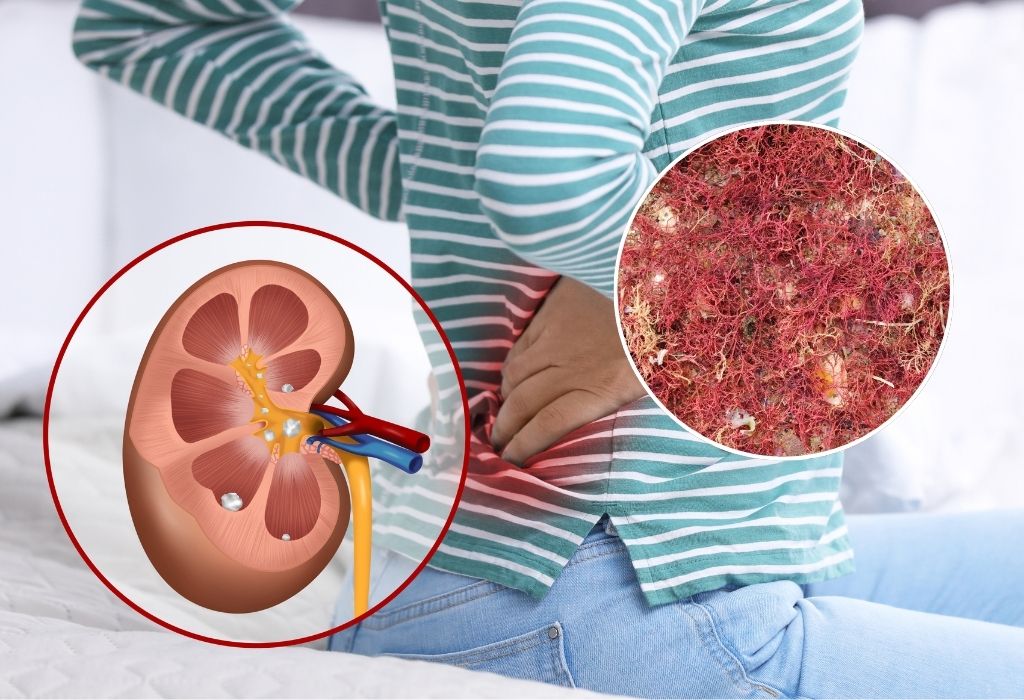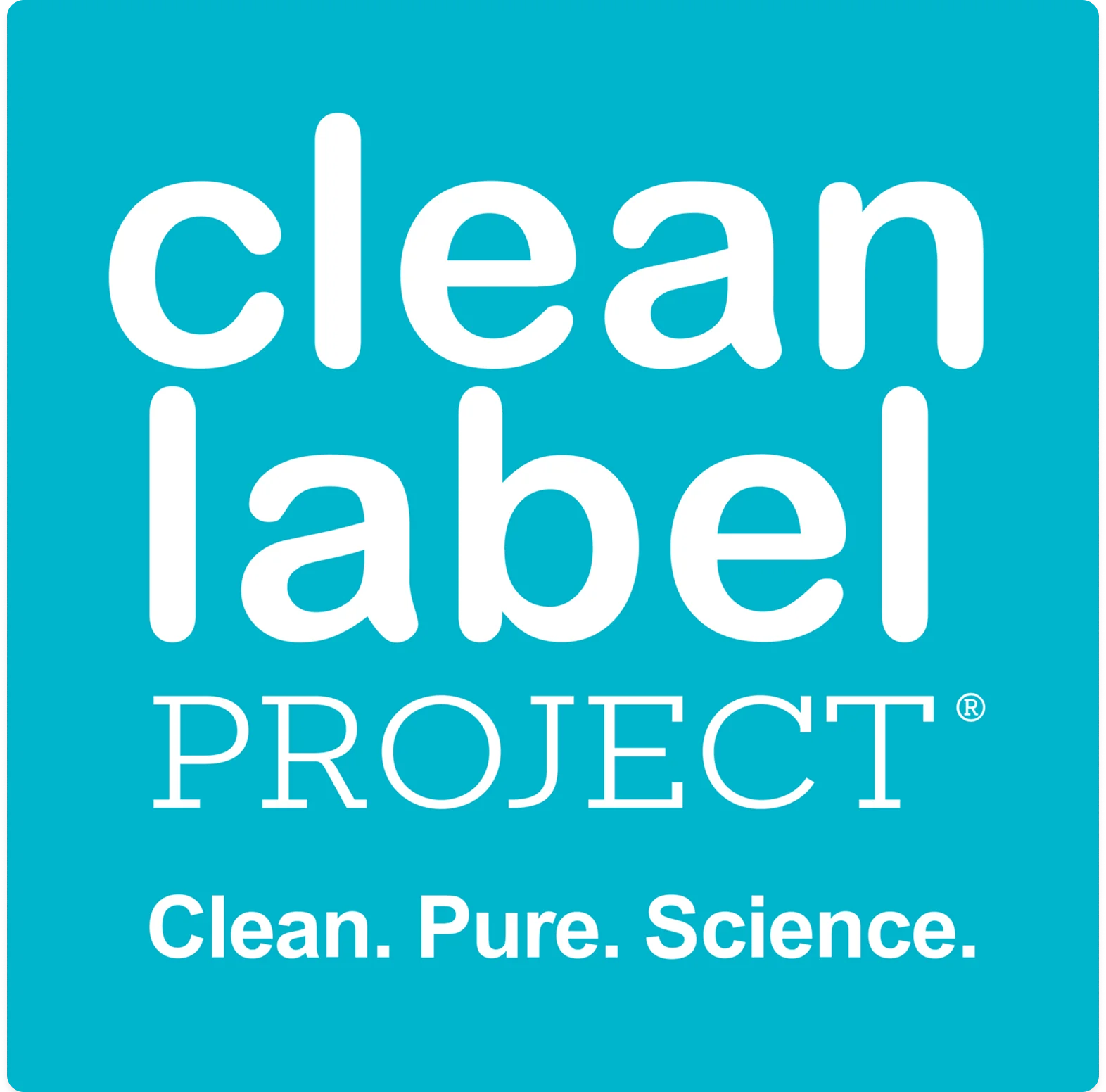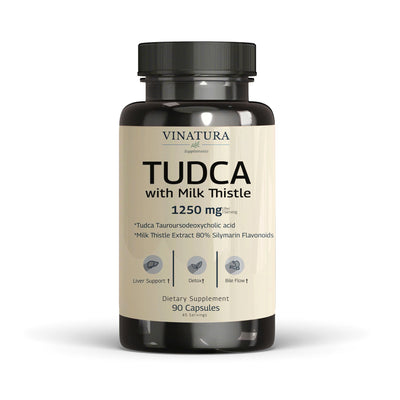
Is Sea Moss Good For Kidneys?
Is Sea Moss Good for the Kidneys? This is a question that has garnered widespread interest. Sea Moss has long been valued and used for its numerous health benefits. Recently, its benefits for kidney health have been explored and utilized to support our bodies. However, improper consumption can negatively impact health. This article will help you understand how to use Sea Moss safely for your kidneys.
Before exploring further, please read the disclaimer located at the end of this webpage.
Key Takeaways
- Sea Moss contains many nutrients beneficial for the kidneys, including minerals and antioxidants.
- It has natural diuretic properties that can reduce the risk of kidney stone formation.
- Sea Moss may also aid in detoxification and protect the kidneys from damage.
- Sea Moss, which contains carrageenan, has benefits for kidney health, but not all carrageenan is beneficial. Therefore, caution is needed, and you should consult a doctor before adding Sea Moss to your diet.
Is Sea Moss Good For Kidneys?
Sea Moss is a nutrient-rich food used in various applications, including food, cosmetics, and more. Research indicates that Sea Moss contains carrageenan and antioxidants, which may help protect, reduce inflammation, and improve kidney function [1], [2].
However, it is important to note that not all types of carrageenan provide benefits. Research has shown that degraded carrageenan can be harmful to the kidneys. Unlike degraded carrageenan, the carrageenan in Sea Moss is completely safe and offers numerous benefits, especially for kidney health [2], [3].
These nutrients may support kidney health by enhancing kidney function and reducing the risk of related diseases.
Benefits Of Sea Moss For Kidney
Crucial Nutrients Supporting Kidney Health
Sea Moss contains essential minerals like zinc, magnesium, calcium, and vitamins such as vitamin E and K [1]. These nutrients help protect and support kidney function, boost the immune system, and aid the body in combating harmful agents that may affect the kidneys.
Natural Diuretic Properties To Ward Off Kidney Stones

Potassium and sodium are crucial minerals that help regulate blood pressure and other fundamental functions. In a typical Western diet, excessive sodium and insufficient potassium can lead to high blood pressure. Potassium helps balance bodily fluids and acts as a natural diuretic, aiding in eliminating excess sodium. Sea Moss is an excellent source of potassium and sodium, which helps balance the sodium/potassium ratio in the body. If you crave salty foods, consuming Sea Moss might be a solution, as potassium has a saltier taste than sodium [4].
This means that Sea Moss may have natural diuretic properties, enhancing the process of filtering and expelling water and waste products from the body. This can potentially reduce the risk of kidney stones, a common kidney-related issue.
Carrageenan’s Role In Mitigating Kidney Damage
Firstly, it's important to remember that there are different types of carrageenan, and not all are safe for health.
Carrageenan is a natural polysaccharide extracted from red seaweed [5]. It can inhibit the formation of kidney stones by preventing the formation, growth, and aggregation of calcium oxalate crystals [3]. Carrageenan also protects renal tubular cells by preventing these crystals' adhesion and intracellular uptake. Furthermore, it has antioxidant properties that help safeguard the kidneys from damage.
Potential Detoxifying Benefits Of Sea Moss For Kidneys
Thanks to its high mineral content, including magnesium, potassium, and iodine, Sea Moss helps regulate blood pressure, balance electrolytes, and support blood filtration. This makes Sea Moss highly promising for detoxifying the kidneys.
Is Sea Moss Bad For Your Kidneys?
While Sea Moss offers numerous benefits for kidney health, excessive or improper use can lead to some issues. Current research suggests that moderate consumption of Sea Moss does not harm the kidneys in healthy individuals.
Is Sea Moss Safe for People with Kidney Disease?

Individuals with kidney disease should exercise caution when using Sea Moss. Although Sea Moss is generally considered safe, some components may interact with medications or increase certain substances in the blood, potentially harming the kidneys. High iodine content in Sea Moss could pose kidney issues. Excess iodine can lead to both hypothyroidism and hyperthyroidism. Both conditions can affect cardiovascular health and blood pressure, thereby strain the kidneys [6].
Moreover, iodine can interact with certain medications, particularly those used for cardiovascular and thyroid conditions, potentially impacting kidney function.
Can You Take Sea Moss if You Have Chronic Kidney Disease (CKD)?
If you have Chronic Kidney Disease (CKD), you should be cautious when using Sea Moss.
Because Sea Moss can contain high levels of iodine, this may exacerbate existing kidney damage.
Additionally, Sea Moss has diuretic properties, which could lead to an electrolyte imbalance and worsen CKD.
Therefore, it is advisable to consult with a doctor or nutrition expert to get guidance on the safety of using Sea Moss. Also, pay attention to the dosage and method of use.
Can You Take Sea Moss If You Have A Kidney Transplant?
Those who have undergone a kidney transplant need to be extremely cautious when using Sea Moss, as it may interact with anti-rejection medications and cause unwanted complications.
Moreover, as mentioned in the article, Sea Moss can negatively affect the kidneys if not used in the correct dosage.
Therefore, you should only use Sea Moss with the permission of your doctor or nutrition expert to avoid affecting your transplanted kidney.
How To Use Sea Moss Safely For Your Kidney
Below are some ways to use Sea Moss safely for your kidneys:
| Sea Moss Form | How to Use | Benefits |
| Sea Moss Gel | - Eat directly - Add to smoothies - Mix into soups, sauces |
- Easy to use - Dissolves well in food and drinks |
| Capsules | - Take directly with water | - Convenient - Easy to control dosage |
| Sea Moss Powder | - Dissolve in water - Add to smoothies - Mix into foods like protein powder |
- Easy to integrate into diet - Easy to control dosage |
| Extract | - Use in health and beauty products - Mix into water |
- Higher concentration of nutrients - Convenient |
| Raw Seaweed | - Soak and soften before use - Blend into gel or use in dishes |
- Control over processing - Retains more nutrients |
Conclusion
Sea Moss is a nutrient-rich source that offers many health benefits, including kidney health. However, Sea Moss should be used cautiously, especially for those with kidney conditions. I hope this article has answered your question: "Is Sea Moss Good for the Kidneys?" If you are considering using Sea Moss safely and effectively, always consult a doctor before adding it to your diet.
References
- [1] Lomartire S, João Carlos Marques, Gonçalves AMM. An Overview of the Health Benefits of Seaweed Consumption. Marine Drugs. 2021;19(6):341-341. doi:https://doi.org/10.3390/md19060341
- [2] Borsani B, Raffaella De Santis, Perico V, et al. The Role of Carrageenan in Inflammatory Bowel Diseases and Allergic Reactions: Where Do We Stand? Nutrients. 2021;13(10):3402-3402. doi:https://doi.org/10.3390/nu13103402
- [3] Poonam Bhadja, Jignesh Lunagariya, Jian Ming Ouyang. Seaweed sulphated polysaccharide as an inhibitor of calcium oxalate renal stone formation. ResearchGate. Published October 28, 2016. Accessed August 18, 2024. https://www.researchgate.net/publication/309546114_Seaweed_sulphated_polysaccharide_as_an_inhibitor_of_calcium_oxalate_renal_stone_formation
- [4] Seaweeds and Human Health – Naturespirit Herbs. Naturespiritherbs.com. Published 2020. Accessed August 18, 2024. https://naturespiritherbs.com/seaweed-health-benefits/
- [5] Luo Y, Wang Q. Recent development of chitosan-based polyelectrolyte complexes with natural polysaccharides for drug delivery. International Journal of Biological Macromolecules. 2014;64:353-367. doi:https://doi.org/10.1016/j.ijbiomac.2013.12.017
- [6] Sarkar D, Chakraborty A, Saha A, Chandra AK. Iodine in excess in the alterations of carbohydrate and lipid metabolic pattern as well as histomorphometric changes in associated organs. Journal of Basic and Clinical Physiology and Pharmacology. 2018;29(6):631-643. doi:https://doi.org/10.1515/jbcpp-2017-0204
Author

Product Disclaimer
Including an ingredient or study does not evaluate, endorse, or recommend any Vinatura product or any third-party product. Some ingredients discussed may not be used in any Vinatura product.
The content of the articles has not been evaluated by the Food and Drug Administration (FDA) and is not intended to promote or endorse any specific product. Any products sold on this website are not intended to diagnose, treat, cure, or prevent any disease.
Opinions and Endorsements
Any claims, statements, or opinions expressed in the articles are those of the author(s) and do not necessarily reflect the views or opinions of the manufacturers of the dietary supplement products. The products sold on this website are separate from the content of the articles and are not directly endorsed or associated with the information presented here.
Liability Disclaimer
The author(s) of the articles, website, and manufacturers of the dietary supplement products do not assume any liability for any potential consequences arising from the use of the information provided in the articles. Ingredient effects, dosages, and safety vary by individual, formulation, and context; some ingredients interact with medications or may be unsuitable during pregnancy or lactation. It is recommended that individuals consult with a qualified healthcare professional before making any dietary or lifestyle changes, including the use of dietary supplements.
Product Usage
Please refer to the product labels and packaging for specific usage instructions and guidelines for the dietary supplement products sold on this website.
Customer Support
For any concerns or questions regarding the dietary supplement products, please contact our customer support team, who will be more than happy to assist you.






Leave a Comment
Be the first to comment.
What do you think?